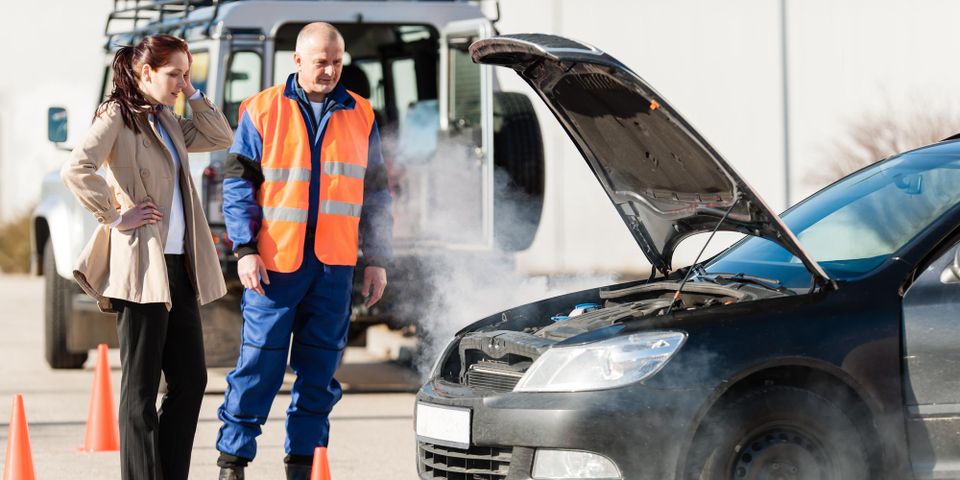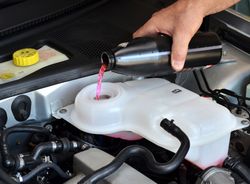
If your engine overheats while driving, you’ll likely experience a sudden, inconvenient breakdown on the road. This issue can cause costly auto repairs or a complete engine replacement. Here’s a brief guide to help you understand why cars overheat and how to avoid the problem.
What Are Its Signs of an Overheating Engine?
Monitor the temperature gauge on your dashboard. If the needle is in the red or H-marked area, the engine is running hotter than normal and may overheat. Overheating engines usually appear to produce smoke; however, this is actually steam coming out from under the hood. If a sweet odor is paired with the steam, you likely have a coolant leak.
What Causes It?
 An engine overheats because the vehicle’s cooling system is broken and can’t absorb and dissipate heat. The system may malfunction due to a coolant leak, which can also damage the radiator and worsen the situation. Overheating can also be traced to a broken thermostat that hinders coolant flow, burst hoses with antifreeze leaks, or a malfunctioning water pump that can’t circulate coolant.
An engine overheats because the vehicle’s cooling system is broken and can’t absorb and dissipate heat. The system may malfunction due to a coolant leak, which can also damage the radiator and worsen the situation. Overheating can also be traced to a broken thermostat that hinders coolant flow, burst hoses with antifreeze leaks, or a malfunctioning water pump that can’t circulate coolant.
What Do I Do When It Happens?
If your engine overheats, pull over to the emergency lane and turn off the car. Wait for 15 to 30 minutes before opening the hood so that the area has time to cool a bit. Locate the coolant tank and top it off if you have a bottle of fluid in your car. If the tank appears full, the issue is likely caused by a malfunctioning part, and you’ll need to call a tow truck and schedule auto repairs immediately.
If your vehicle is overheating due to a broken part, contact the team at F.A.T.S. Service in Anchorage, AK. This auto repair shop has provided drivers with reliable vehicle maintenance and fixes for over 30 years. Their ACE-certified mechanics will assess your engine, diagnose the issue, then make any necessary repairs or replacements. For more information about their services, visit the website or call (907) 561-5721.
About the Business
(97 reviews)
Have a question? Ask the experts!
Send your question

